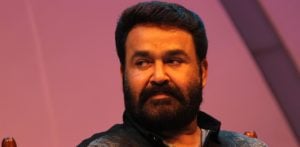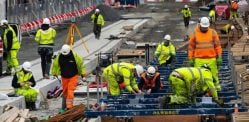"Almost everyone's going to be priced out."
US President Donald Trump has signed an executive order adding a $100,000 (£74,000) annual fee on new H-1B visa applications.
The order cites “abuse” of the skilled worker programme and restricts entry unless payment is made.
It comes into effect on September 21 and, according to the White House, applies only to new applicants.
Critics say the move could cripple smaller companies that rely on foreign workers, while supporters argue it will encourage the hiring of American employees.
Billionaire Elon Musk has defended the H-1B scheme, saying it helps attract top global talent.
In a separate order, Trump also unveiled a new “gold card” fast-track visa, available to certain immigrants in exchange for fees starting at £1 million.
US Commerce Secretary Howard Lutnick explained the impact on companies:
“The company needs to decide… is the person valuable enough to have a $100,000-a-year payment to the government, or they should head home, and they should go hire an American.
“All of the big companies are on board.”
Shortly after, White House Press Secretary Karoline Leavitt said the $100,000 fee would instead be a one-time payment.
Abigail Jackson, a White House spokesperson, clarified that the fee “does not apply to anyone who has a current visa” and “only applies to future applicants in the February [2026] lottery who are currently outside the US. It does not apply to anyone who participated in the 2025 lottery”.
Jackson added: “The Proclamation does not impact the ability of any current visa holder to travel to/from the US.”
The H-1B programme has long been capped at 85,000 visas annually. Until now, applicants faced administrative fees totalling around $1,500.
Data from US Citizenship and Immigration Services shows applications dropped to about 359,000 this year, a four-year low.
Amazon was the biggest beneficiary last year, followed by Tata, Microsoft, Meta, Apple and Google.
Late on September 19, Amazon urged H-1B holders already in the US to stay put. Those abroad were told to “try to return before tomorrow’s deadline if possible”.
The company advised employees unable to re-enter to avoid travel “until further guidance is provided”.
India accounted for 71% of approved H-1B applications in 2024, while China followed at 11.7%.
India’s IT trade body Nasscom said it was concerned about the order, warning the one-day deadline created “considerable uncertainty for businesses, professionals, and students across the world”.
Tahmina Watson, founding attorney at Watson Immigration Law, said the ruling could be devastating.
She told the BBC: “Almost everyone’s going to be priced out. This $100,000 as an entry point is going to have a devastating impact.”
She explained that many small or medium-sized companies “will tell you they actually can’t find workers to do the job”.
Watson added: “When employers sponsor foreign talent, more often than not, they’re doing that because they have not been able to fulfil those positions.”
Jorge Lopez, chair of immigration and global mobility at Littler Mendelson PC, also voiced concern.
He said a $100,000 fee “will put the brakes on American competitiveness in the tech sector and all industries”.
Companies might shift operations abroad, though he noted that would be difficult in practice.
The decision has reopened divisions in Trump’s circle.
His former strategist Steve Bannon opposed the visas, while others within his team backed them. Trump himself acknowledged the split in January.
He told the All-In Podcast: “You need a pool of people to work for companies.
“You have to be able to recruit these people and keep these people.”
On the campaign trail in 2024, Trump promised to make it easier for graduates to gain green cards:
“You have to be able to recruit these people and keep these people.”
But Trump has also taken a harder stance in the past. In 2017, he signed an order to increase scrutiny of H-1B applications.
Rejections peaked at 24% in 2018, compared to 5-8% under Barack Obama and 2-4% under Joe Biden.
The latest move suggests Trump is doubling down on restricting skilled worker immigration, despite pushback from the tech sector and warnings of long-term economic damage.
India has warned of “humanitarian consequences”, with the Indian foreign ministry said New Delhi hoped the disruption caused by the president’s decision could be “addressed suitably” by the authorities in the US, adding that it was studying the full implications of the policy.
Telangana chief minister Revanth Reddy urged Narendra Modi to treat the issue on a “war footing”, warning that the suffering of IT workers from his southern state in America would be “unimaginable”.
Opposition politicians accused Trump of targeting Indians specifically.
Congress MP Akhilesh Prasad Singh said: “The way they treat Indians shows they don’t want to see PM Modi or Indians at all.”






























































